Hajj of Heart and Heart of Hajj
Dhu al-Hijjah is spring of love, yearning, and salvation in which pilgrims become as they were born anew and a petal from their life falls down whereas a new petal of pure life sprouts with spiritual bliss. In this season, the aroma of ishq between Khāliq and khalq (the Creator and creatures) permeates, and ḥubb between them pervades, which is a sheer feeling that fails any words to describe. 'The guests of most Merciful' (ḍuyūf al-Raḥmān) is a highly revered title conferred on every pilgrim. That is a moment where the Creator comes down to host His creatures and the feast is of His immense mercy.
Being with this sincere emotion, pilgrims loudly pronounce 'labbayk', by then their names are stamped in the guest-list, and they enter a new abode and melt in longing for Allah. Labbayk is their slogan, which asserts the "oneness of Allah" in praise, blessings, and authority. Apart from the emotions embedded therein, it can slightly be translated as "I respond to Your call O Allah, I respond to Your call, and I am obedient to Your orders, You have no partner, I respond to Your call. All the praises and blessings are for You, All the sovereignty is for You, And You have no partners with you." Inexplicable is the emotion of a devotee who forgot the self in the remembrance of Allah.
Retaining this love in heart and slogan in lips, hājī enters Masjid al-Ḥaram but still Rabb al-bayt (the Lord of the Kaʿbah) remains unseen, at that point he/she portrays the vigour of belief in the 'Unseen' (al-ghayb), which is a crucial part of faith in Islam. Allah introduces the believers, "who believe in the unseen, establish prayer, and donate from what We have provided for them" (al-Baqarah: 3). Therefore, hajj is an exemplification of absolute submission, thorough observance of divine injunctions, striving towards soulful excellence, answering to the heavenly call (Abū Ḥāmid al-Ghazālī, Iḥyā' ʿUlūm al-Dīn, 1: 240).
The ultimate wish of every believer is to meet the Lord (liqā' Allah); with Him they passionately communicate on a daily basis and for Him, they step back from several lusts. Part of this thirst is quenched via the daily prayers, fasting, charities, recitations, etc., whereas the hajj embodies the epitome of the spiritual serenity in this regard (al-Dahlawī, Ḥujjat Allābi al-Bālighah, 1: 59).
Allah emphasized on acquiring two provisions as the sustenance for the journey of hajj, they are taqwah (piety, fear of God) and dhikr (remembrance of Allah). These two provisions are highlighted in the Quranic verses related to hajj. For example, Allah says about taqwah, "Take necessary provisions for the journey, surely the best provision is taqwah. And be people of taqwah, O people of reason! (al-Baqarah 197). "Whoever honors the symbols of Allah, it is certainly out of the taqwah of the heart" (al-Hajj: 32).
About the importance of dhikr in hajj, the Quran says, "When you return from ʿArafah, do dhikr of Allah near the sacred place and do dhikr of Him for having guided you" (al-Baqarah: 198). "And when ye have completed your devotions, then remember Allah as you remember your fathers or with a more lively remembrance" (al-Baqarah: 200).
Here, pilgrims need to do self-introspection about the awareness regarding the uninterrupted surveillance of Allah on their faith and action. Likewise, they may increase the time they are spending for the remembrance of Allah with their tongue and heart.
Hajj is the remembrance of Allah, affirmation of tawḥīd, reinforcement of the faith, seeking the Lord, seeing His symbols, adhering to His injunctions, staying away from His prohibitions, getting profoundly purified, coming closer to Him, obtaining the salvation, preparing to receive the reward which is nothing but the paradise. For many, it is a junction in the road of life, to move from bad to good or from good to better. Hajj is more about the internal journey than external.
Hajj is a yearning for the house (Kaʿbah) and longing to be the guest therein, knowing who the is Host to seek His proximity. It then witnesses the unclouding of our hearts and reconnecting to the shahadah before the Qiblah. It sprouts a feast of the inward richness in the age of spiritual drought.
Since physically, many can't undertake a journey to the holiest city, it compels us to think of a spiritual pilgrimage to Makkah only to try our best to reap the benefits of the hajj. With a solid aspiration to do the obligatory hajj sooner rather than later, let's do a 'hajj' with heart, navigating its maqāṣid (higher objectives of Sharīʿah in enjoining the hajj) and spiritually circling the Kaʿbah. Hajj is not a checklist of obligations but a journey to the self to happen in the Almighty Allah.
A model of spiritual hajj is described below with seven steps in order.
- Enrich ourselves with remembrance and mindfulness of Allah – taqwahand dhikr.
- Sincere supplication for selves and all brothers and sisters – fraternity of believers.
- Affirmation of tawḥīd – Message of Labbayk.
- Absolute submission and belief in the Unseen – importance of īmān bi al-ghayb.
- Cherish the sweetness of faith by loving Allah and His Prophet (ﷺ) more than anything – ḥalāwat al-īmān
- Yearning to meet the Lord – Liqā' Allah.
- Winning forgiveness and paradise – rewards of ḥajj mabrūr.
As many of us are far from Makkah, though it is undoubtedly incomplete, we still can have a 'spiritual hajj' by implanting the features of ideal hajj in our life and attempting to get its maximum results and rewards, as finally whatever occurs in this world is to be the land for cultivating the hereafter. Allah knows the best (Wa Allāhu Aʿlam).
About the author
Sayyed Mohamed Muhsin, PhD is Assistant Professor of Islamic jurisprudence at the International Islamic University Malaysia (IIUM), Kuala Lumpur. He also serves as Editor-in-Chief of Islamonweb-English (https://en.islamonweb.net/)
(The initial form of this article was pubished on Islamicity on July 17, 2021)
Disclaimer
The views expressed in this article are the author’s own and do not necessarily mirror Islamonweb’s editorial stance.
1 Comments
-

Masha Allah. The insights have been beautifully inscribed within the threads of metaphor. Quite satisfactory can be 'Spiritual Hajj' for the aspirants of Hajj both in terms of spiritual as well as mental health. May Allah fulfil our longing to visi the Holy Ka'bah: Āmeen ????????

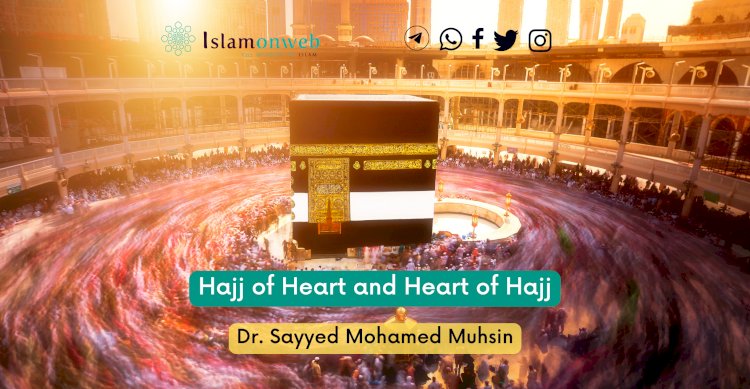


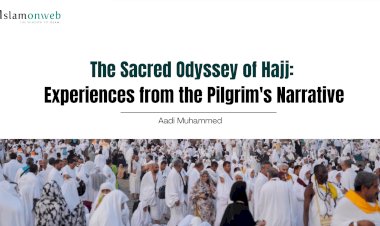

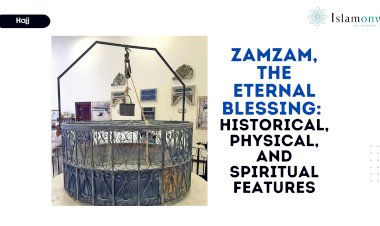
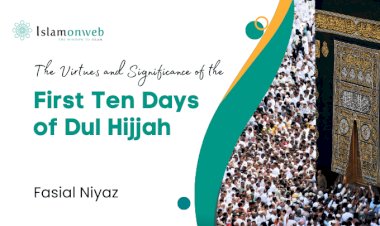
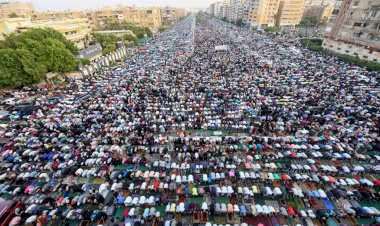
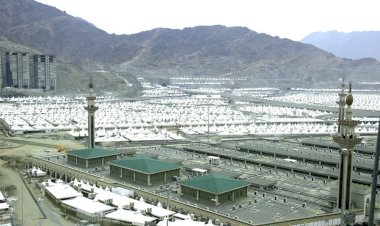














Leave A Comment